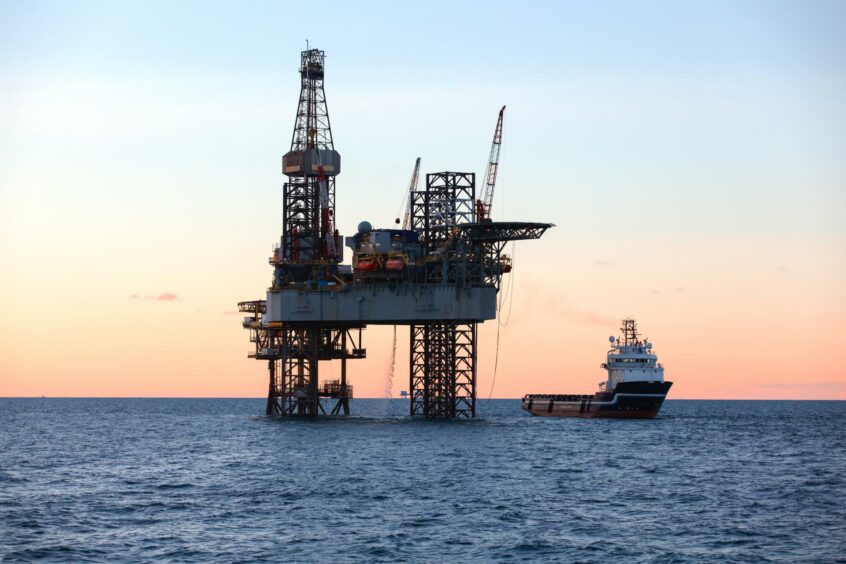
Energy Voice talks to Jason Fox, Managing Partner, London, and Alastair Young, Partner, at Bracewell (UK) LLP on the future of North Sea investment as Brent crude oil remains at around $100.
-What does the surge in oil and gas prices do for the investment environment in the North Sea?
Higher oil and gas prices will undoubtedly encourage more investment in the North Sea – so long as market participants don’t view this as a short term thing. The UK’s North Sea Transition Authority (NSTA) estimates that remaining UK recoverable petroleum resources are in the range of 10–20 billion boe. The oil and gas price, together with Government policy and taxation rates, are the key factors in determining how much investment will go into producing those reserves, or whether that investment will be deployed in other areas.
Do you think it is likely we’ll see further oil and gas investment, despite ESG concerns?
The legally binding “central obligation” of the North Sea has two equal strands; namely to maximise oil and gas production value, but also to assist to meet the UK’s 2050 “net zero” greenhouse gas emissions target. The Russian invasion of Ukraine has brought the importance of energy security back into focus. For corporates and their investors, the war in Ukraine and the ostracism of Russian exports and markets are a stark reminder of the political risks of investments in certain jurisdictions. We expect to see further UK oil and gas investment, as well as further investments in UK renewable energy production, and technologies such as battery storage, facilitated by the UK Government but also encouraged by the attributes of the UK market.
-Are there any barriers to investment at this point?
Companies and individuals which are subject to sanctions imposed following the invasion of Ukraine will not be able to invest in the North Sea while those sanctions remain in place. The North Sea is not really exposed to Russian companies. The same cannot be said for Chinese state owned companies which hold significant North Sea investments. The North Sea is highly regulated and new investments require Government approvals. New entrants (and those attempting sales) must deal with political uncertainties, the high costs of decommissioning ageing infrastructure, and untangling the often complex web of contracts and funding and security instruments governing commercial oil and gas field arrangements.
-We’ve seen opportunistic M&A in the UKCS while prices were low last year, how might that be affected?
Volatility in oil and gas prices can be challenging for M&A activity. In this current rising oil and gas price environment, sellers may worry about leaving money on the table (or whether selling is a good idea at all) while buyers might be wary of future market corrections and the risk of over-paying. Quite sophisticated risk, and up-side, sharing arrangements, including in the form of oil price based contingent purchase price adjustments, have been developed by buyers and sellers as a tool to bridge price-expectation gaps to help M&A deals to be signed and completed.
-Certain North Sea operators have hefty debt piles – can we expect debt to generally be driven down with high commodity prices?
As a result of previous extreme oil price volatility (in the downward direction) in 2015/2016 and again in 2020 most E&P companies now hedge significant portions of their production to protect against price drops and this tends to delay and reduce the upside they experience when prices increase. So the full benefit of price increases is never immediately enjoyed by these companies. But over time the high prices will have significant cash flow benefits and companies will likely use this to reduce debt. However the landscape for upstream financing has become more difficult for E&P companies as lenders are generally cutting back their loans books for the sector. This means that many companies, having reduced debt, will find it more difficult to find the same leverage in the future when acquisition opportunities or other capital intensive needs arise.
-We’ve seen some debate around whether oil firms should use windfall profits from higher prices on shareholder returns/ buybacks. Some say that’s not appropriate given the invasion of Ukraine is driving some of the gains. What’s your view from an ESG perspective?
Company directors must always balance the competing need for shareholder returns (without which there would be no shareholder investment) against the need to re-invest capital for future growth or to repay debt in a way that is right for the particular company at the relevant time. That balancing act has to be done in the knowledge that global events, outside the control of energy companies, can move oil and gas prices up as well as down, and both open and close markets and investment opportunities, very quickly and often with little warning. In contrast, it can take years for a new oil and gas field to be discovered, appraised and developed or for other large scale projects to be completed. New investments, whether in oil and gas or renewables, require healthy balance sheets, access to capital, and suitable confidence in an acceptable level of future shareholder returns.
Recommended for you

 © Supplied by Bracewell
© Supplied by Bracewell